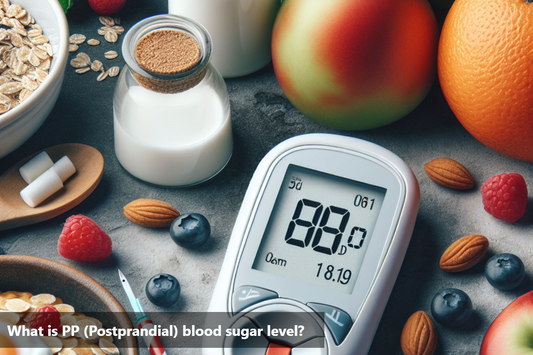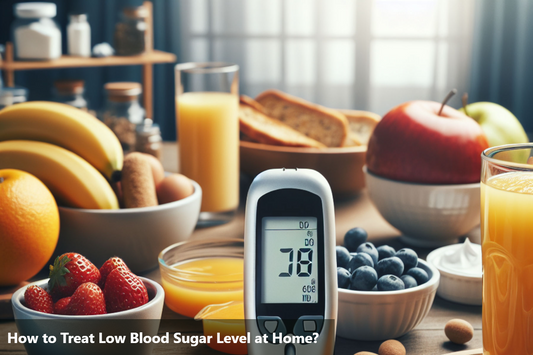Diabetes is a complex condition that can manifest in various ways throughout the body, including the skin.
One common yet often overlooked symptom of diabetes is the appearance of dark patches on the skin, particularly around the neck area. These dark patches, often referred to as a "dark neck" or "black neck," can serve as a potential indicator of an underlying health issue such as diabetes.
The link between diabetes and skin problems is crucial to understand because changes in the skin can sometimes be the first signs of diabetes or other health concerns.
Individuals with diabetes may experience hyperpigmentation or darkening of the skin due to factors like insulin resistance and hormonal imbalances.The emergence of a dark neck in individuals with or at risk of diabetes may be attributed to a condition called acanthosis nigricans, characterized by dark, velvety patches of skin.
Recognizing these skin changes early on and seeking medical advice can aid in the timely detection and management of diabetes and related complications. Monitoring skin health, particularly the appearance of a dark neck, can provide valuable insights into one's overall well-being and prompt necessary actions for optimal health management.
Understanding Diabetes and Skin Health
Diabetes affects skin health, leading to hyperpigmentation like dark patches, especially on the neck. Changes in skin color due to insulin resistance can trigger darkening, revealing potential health issues. Recognizing these signs early can aid in managing pre-diabetes or diabetes. Monitoring blood sugar levels, lifestyle, and skincare can effectively address these skin concerns. Understanding the diabetes-skin health connection is vital for proactive care. Regularly monitoring skin changes and seeking medical advice is crucial for overall well-being.
The Connection Between Diabetes and a Dark Neck
When it comes to diabetes, the impact on the skin can be quite significant. One common manifestation of this is the occurrence of a dark neck. But why does diabetes lead to this particular skin issue?
-
Insulin Resistance: In individuals with diabetes, especially those with insulin resistance, skin problems like darkening of the neck may arise. This resistance can trigger an overproduction of insulin, which in turn can lead to skin pigmentation changes and ultimately result in a dark neck.
-
Acanthosis Nigricans: A key factor linking diabetes to a dark neck is the presence of acanthosis nigricans. This skin condition is characterized by dark, velvety patches that usually appear in body folds and creases, including the neck. Acanthosis nigricans is often associated with insulin resistance, making it a common skin issue in individuals with diabetes.
-
Prevention and Monitoring: To address a dark neck linked to diabetes, it is essential to manage blood sugar levels effectively. Regular monitoring, lifestyle modifications, and seeking medical advice can help in controlling diabetes-related skin complications like a dark neck.
Understanding the underlying reasons for a dark neck in diabetes can facilitate early intervention and effective management, ensuring both skin health and overall well-being.
Other Factors Contributing to a Dark Neck
Obesity as a Factor:
-
Obesity is a significant factor contributing to the development of a dark neck in individuals with diabetes. Excess body weight can lead to a condition known as acanthosis nigricans, characterized by dark, velvety patches on the skin, including the neck area. These patches may result from the body's insulin resistance, commonly seen in people with type 2 diabetes.
Hygiene Practices:
-
Maintaining good hygiene practices is crucial in preventing or reducing the appearance of a dark neck. Regularly cleaning and exfoliating the neck area can help eliminate dead skin cells and prevent the buildup of pigmentation, reducing the risk of a darkened neck.
Blood Sugar Levels:
-
In individuals with diabetes, high blood sugar levels can contribute to skin discoloration, including the neck region. Monitoring and managing blood glucose levels effectively can play a role in preventing skin issues like dark neck.
Physical Activity and Diet:
-
Engaging in physical activity and following a balanced diet can aid in weight management, potentially alleviating the risk of developing a dark neck associated with diabetes.
Medical Advice and Treatment:
-
Seeking medical advice and appropriate treatment for diabetes can help address skin concerns and overall health effectively.
Other Skin Conditions brought about by Diabetes
1. Dry Skin (Xerosis)
-
Causes: High blood sugar levels can lead to fluid loss and reduced moisture in the skin.
-
Symptoms: Rough, flaky, and itchy skin, particularly on the legs, elbows, and feet.
2. Infections
-
Bacterial Infections: Increased risk of bacterial infections like boils, styes, and carbuncles. Common culprits include Staphylococcus aureus.
-
Fungal Infections: Higher susceptibility to fungal infections such as athlete's foot, ringworm, and yeast infections (Candida). Symptoms include itchy rashes, redness, and blisters.
3. Slow Wound Healing
-
Causes: Poor circulation and nerve damage (neuropathy) can impair wound healing, making it easier for minor cuts and blisters to develop into serious infections.
-
Symptoms: Ulcers, particularly on the feet, that heal slowly or do not heal at all.
4. Diabetic Dermopathy
-
Causes: Changes in small blood vessels and reduced blood flow to the skin.
-
Symptoms: Light brown, scaly patches on the front of the legs. These patches are usually harmless and do not require treatment.
5. Itching
-
Causes: Dry skin, poor circulation, or yeast infections.
-
Symptoms: Persistent itching, especially in the lower legs, feet, and forearms.
-
Connecting the Dots: Diabetes and the Development of Dark Skin Patches on the Neck
Having dark patches on your neck could be a sign of health problems like diabetes. It's important to keep an eye on these changes to catch any issues early on. Diabetes often causes dark neck, but other reasons should also be considered.It's important to understand how diabetes can affect your skin. Dark patches on your neck might mean you have insulin resistance or other metabolic problems related to diabetes. These changes could also be caused by a skin disorder linked to diabetes called acanthosis nigricans.
Checking your skin regularly and getting medical help when needed is important. Taking care of your skin, keeping a healthy weight, and managing your blood sugar levels can help control skin problems linked to diabetes. Plus, watching out for things like obesity and practicing good hygiene can prevent dark neck and other skin issues.In summary, keeping an eye on your skin, especially your neck, can tell you if you have health issues like diabetes. By staying alert and taking care of any skin problems, you can manage your health. Make sure to see a healthcare provider for the right diagnosis and treatment plan.
DiabeSmart is the first food range exclusively crafted for diabetics. Enjoy clinically tested, delicious products that let you keep your favorite food habits while managing your blood sugar levels effortlessly.
This Blog post is an initiative by DiabeSmart, to provide accurate and Nutritionist / Doctor approved information related to Diabetes. DiabeSmart is India's first Food brand designed specifically for Diabetics, that has been clinically tested on Diabetics and Pre-Diabetics to deliver 55% - 70% lower Sugar spikes. DiabeSmart is part of Lo! Foods - India's leading brand for Everyday Functional Health foods.















